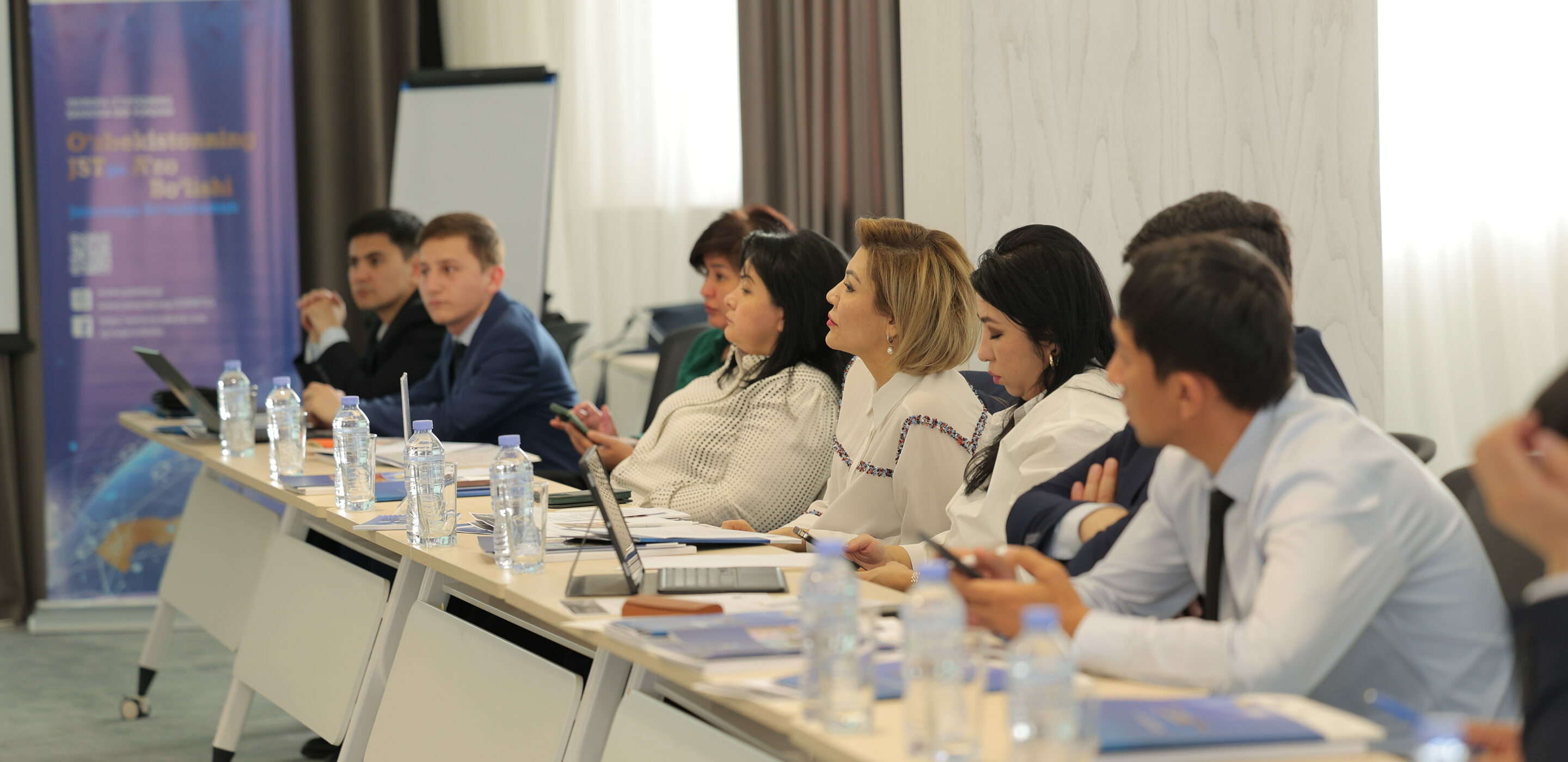ITC supports key progress on new food safety rules for Uzbekistan
08.04.2024 2529Government and legislative representatives were briefed on how to navigate the new Food Safety Bill developed for Uzbekistan with ITC help. This will ensure safe food imports and also ease the country’s way to WTO membership.
Consumer welfare is a key priority in rules regulating trade. This is especially important with trade in food products.
In 2023, the ITC assisted Uzbekistan in drafting and reviewing a central piece of legislation to regulate food safety. The bill now has to be enacted to bring the country’s food control standards and regulations in line with global requirements when it joins the World Trade Organization (WTO).
To help oil this process, the ITC organized an expert meeting on 29 March with a deputy of the Legislative Chamber of the Oliy Majlis of Uzbekistan, and with heads and technicians of food control agencies, to help navigate the new bill and understand the significance of its enactment. The gathering was briefed on the modern principles of ensuring food safety.
The WTO has a dedicated set of rules — the Agreement on the Application of Sanitary and Phytosanitary Measures (SPS) — that offers Member states the right to impose measures to warrant food safety and protect animal and plant life and health. At the same time, it seeks to ensure that such measures are not overly protectionist and thereby impede trade.
Countries that join the WTO have to align their food laws with the SPS Agreement and must also follow relevant international standards. These range from standards for good hygienic practice and production process controls, to product information labelling and consumer awareness.
New risks and trends
In recent times, food safety management has become complex with new trends such as localization drives, digitalization and increased online shopping. It also faces the emergence of new risks, such as antimicrobial resistance and climate change issues. This means safety controls have been tightened and are more nuanced.
The meeting with the governing and legislative branches was complemented by a three-day expert training from 25-27 March for academics, food industry representatives, and technicians in the field to also hone their understanding of the latest methods in food safety management.
Participants learned about the Hazard Analysis Critical Control Point, which is the food safety control system now used in most countries. HACCP ensures safe production of foodstuffs by identifying and controlling hazards. Its principles were standardized by the Codex Alimentarius Commission and has become a mandatory legal requirement in many countries.
The training in 15 succinct modules unpacked the structure of the HACCP system, the seven principles that underpin it and its technical procedures. Technicians obtained the expertise to apply the rules when they come into force. The participation of academics means this knowledge will feed into trade law and practice curricula and help prepare systematic institutional knowledge from university level.
A second leg of the training zoomed in on the risk-based approach for state controls on food safety.
Other laws under development
In its journey to bring its food control measures in line with WTO requirements, Uzbekistan is also formulating other key pieces of legislation with the help of the ITC.
Notably, to support the WTO’s transparency principle, it is working on legislation to set up structures for handling animal and plant health safety queries from other countries once Uzbekistan is a WTO member. These are called the SPS National Notification Authority (NNA) and National Enquiry Point (NEP).
It has also translated key WTO animal and plant health documentation into the Uzbek language. These will serve as source documents for the country to comply with international SPS standards and rules, and will help standardize technical SPS terminology in the national language.
The assistance, coordinated by the ITC, was funded by the European Union under the project Facilitating the process of Uzbekistan’s accession to the WTO. The five-year initiative supports Uzbekistan’s negotiations at the WTO and helps develop technical skills to implement its agreements.

